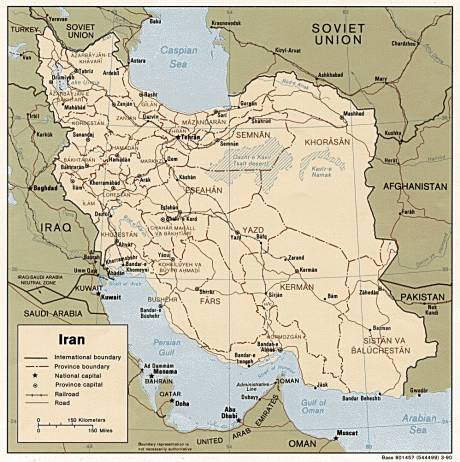به زبان فارسی
PICTORY
LATEST MUSIC
SEARCH
The Good Thing
by Joubin
04-Feb-2012
16. Yü / Enthusiasm above CHêN THE AROUSING, THUNDER The strong line in the fourth place, that of the leading official, meets with response and obedience from all the other lines, which are all weak. The attribute of the upper trigram, Chên, is movement; the attributes of K'un, the lower, are obedience and devotion. This begins a movement that meets with devotion and therefore inspires enthusiasm, carrying all with it. Of great importance, furthermore, is the law of movement along the line of least resistance, which in this hexagram is enunciated as the law for natural events and for human life. THE JUDGMENT ENTHUSIASM. It furthers one to install helpers The time of ENTHUSIASM derives from the fact that there is at hand an eminent man who is in sympathy with the spirit of the people and acts in accord with it. Hence he finds universal and willing obedience. To arouse enthusiasm it is necessary for a man to adjust himself and his ordinances to the character of those whom he has to lead. The inviolability of natural laws rests on this principle of movement along the line of least resistance. Theses laws are not forces external to things but represent the harmony of movement immanent in them. That is why the celestial bodies do not deviate from their orbits and why all events in nature occur with fixed regularity. It is the same with human society: only such laws are rooted in popular sentiment can be enforced, while laws violating this sentiment merely arouse resentment. Again, it is enthusiasm that enables us to install helpers for the completion of an undertaking without fear of secret opposition. It is enthusiasm too that can unify mass movements, as in war, so that they achieve victory. THE IMAGE Thunder comes resounding out of the earth: Inviting their ancestors to be present.When, at the beginning of summer, thunder--electrical energy--comes rushing forth from the earth again, and the first thunderstorm refreshes nature, a prolonged state of tension is resolved. Joy and relief make themselves felt. So too, music has power to ease tension within the heart and to loosen the grip of obscure emotions. The enthusiasm of the heart expresses itself involuntarily in a burst of song, in dance and rhythmic movement of the body. From immemorial times the inspiring effect of the invisible sound that moves all hearts, and draws them together, has mystified mankind. Rulers have made use of this natural taste for music; they elevated and regulated it. Music was looked upon as something serious and holy, designed to purify the feelings of men. It fell to music to glorify the virtues of heroes and thus to construct a bridge to the world of the unseen. In the temple men drew near to God with music and pantomimes (out of this later the theater developed). Religious feeling for the Creator of the world was united with the most sacred of human feelings, that of reverence for the ancestors. The ancestors were invited to these divine services as guests of the Ruler of Heaven and as representatives of humanity in the higher regions. This uniting of the human past with the Divinity in solemn moments of religious inspiration established the bond between God and man. The ruler who revered the Divinity in revering his ancestors became thereby the Son of Heaven, in whom the heavenly and the earthly world met in mystical contact. These ideas are the final summation of Chinese culture. Confucius has said of the great sacrifice at which these rites were performed: He who could wholly comprehend this sacrifice could rule the world as though it were spinning on his hand. -- And now, let's have some Music:
below K'UN THE RECEPTIVE, EARTH
And to set armies marching.
The image of ENTHUSIASM.
Thus the ancient kings made music
In order to honor merit,
And offered it with splendor
To the Supreme Deity,
| Recently by Joubin | Comments | Date |
|---|---|---|
| Dissonance & Consonance | - | Feb 06, 2012 |
| You say you want regime change? | 2 | Jan 27, 2012 |
| Quod Erat Demonstrandum | - | Jan 22, 2012 |
RECENT COMMENTS
IRANIANS OF THE DAY
| Person | About | Day |
|---|---|---|
| نسرین ستوده: زندانی روز | Dec 04 | |
| Saeed Malekpour: Prisoner of the day | Lawyer says death sentence suspended | Dec 03 |
| Majid Tavakoli: Prisoner of the day | Iterview with mother | Dec 02 |
| احسان نراقی: جامعه شناس و نویسنده ۱۳۰۵-۱۳۹۱ | Dec 02 | |
| Nasrin Sotoudeh: Prisoner of the day | 46 days on hunger strike | Dec 01 |
| Nasrin Sotoudeh: Graffiti | In Barcelona | Nov 30 |
| گوهر عشقی: مادر ستار بهشتی | Nov 30 | |
| Abdollah Momeni: Prisoner of the day | Activist denied leave and family visits for 1.5 years | Nov 30 |
| محمد کلالی: یکی از حمله کنندگان به سفارت ایران در برلین | Nov 29 | |
| Habibollah Golparipour: Prisoner of the day | Kurdish Activist on Death Row | Nov 28 |



